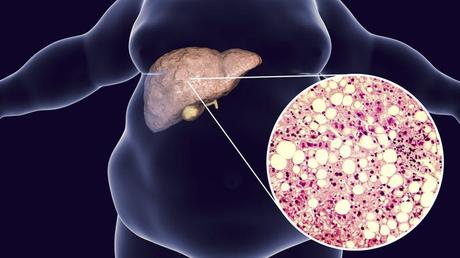
Nutrition wars on social media may be at an all-time high. That isn't a scientific fact, but it sure feels like it.
"My side is right." "Your side is killing people." The hyperbole and the rhetoric seem unprecedented. It has gone well beyond science into personal attacks, criminal accusations, and emotion-filled tirades.
The recent escalation was kicked-off by a recent series of studies published in the prestigious journal Annals of Internal Medicine suggesting that high-quality science does not support lowering our intake of red meat. This finding is supported by both prospective and observational studies published in peer reviewed journals. It is backed by science.
Yet, the recent publications was met with cries of fraud, deception and outright harm. Those who staunchly defend vegan and vegetarian diets as the only path to health and salvation attacked these studies and called for their retraction.
Their retraction! It is as if the authors were fabricating the data or were purposefully deceiving the public.
That's just not the case. These were scientific studies. The authors carefully graded the quality of the research. They explained their scientific methods. They focused on an individual perspective and downgraded science that has extremely weak associations. They were upfront and transparent about their process. There was no fraud. There was no deception.
But why the strong, hateful response? It's because some would rather accept poorly controlled observational data with very weak associations that support their beliefs than data that has been adjusted for strength and quality and does not support their beliefs.
And while I am at it, why the strong rejection by some that carbohydrate restriction can be an effective therapy for obesity, diabetes, and metabolic syndrome? Again, the science supports it. There is no fabrication. There is no fraud.
Why do some claim loudly that those promoting low carb are criminals who are killing people?
Do some in the low-carb world claim a little too loudly that low-carb is the only way? Do some shout about its many benefits, some backed by research and some not?
Yes, they do. That is part of human nature and, I have news for you, the same can be said about vegan and vegetarian advocates. Yet somehow those advocating for plant-based diets don't get quite the same rebuke.
In fact, if anyone has been promoting the "one diet for everyone" message, it is those promoting a vegan diet for all.
Low carb, on the other hand, does not discriminate. Low-carb can exist with a vegan, vegetarian, omnivore, or carnivore twist. Low carb doesn't discriminate, and it is backed by science. Just reduce your carbs in a manner that you can sustain, and you will improve your blood pressure, type 2 diabetes and metabolic syndrome.
The science backs that up.
Can you achieve those goals by other means? Of course you can.
Does everyone have uniform success with low carb or with other means? Of course not.
Before I dwell too long about the failings of social media and nutrition science, in comes Dr. David Ludwig with a new article responding to prior critique of his work with poise.
International Journal of Obesity: Scientific discourse in the era of open science: a response to Hall et al. regarding the Carbohydrate-Insulin ModelDr. Ludwig, a Harvard researcher and endocrinologist, published a paper last year showing that those following a low-carb diet, post-weight loss, burned an average of 200-280 additional calories per day compared to those on a higher-carb diet. ( Here is a link to our podcast that we recorded just before the study was published, and an article we wrote shortly after it was published). Some, most notably researcher Dr. Kevin Hall, criticized the methods Dr. Ludwig used.
Did Dr. Ludwig strike back with personal attacks? Did he call his critics "zealots" or simply dismiss their rebukes? Not at all. Instead, he made all his data publicly available and essentially said, "Here it is; let's have a constructive discussion about this and one of two things will happen. Either my methods will be shown to be inaccurate, or they won't." Either way, the winner in the end is science. I believe a belief in science is why Ludwig does what he does. He is not trying to prove his self-worth by being "right." He hopes to promote good science, ultimately to help people improve their lives.
I am not sure what to make of the nutrition wars. (I dislike military analogies, but I am afraid this one seems fitting.) But I know this for sure. It is time to recognize the scientifically proven benefits for low-carb nutrition. It is time to recognize carbohydrate restriction as a powerful, proven tool to help people improve their health.
Advocates for low carb are not hurting people. They are promoting an evidence-based diet now recognized by the American Diabetes Association as the most effective therapy for glucose regulation. This should be a tool in the tool box of every physician. If our goal is to reverse our current obesity and diabetes epidemics, we have to use carb restriction as a tool in the right circumstances. While we are at it, we have to get away from the dogma that there is one way to treat all people.
Can we do that and be civil to one another? After all, it isn't about us. It never was. It is about the millions of people who need our help.
Thanks for reading,
Bret Scher, MD FACC


